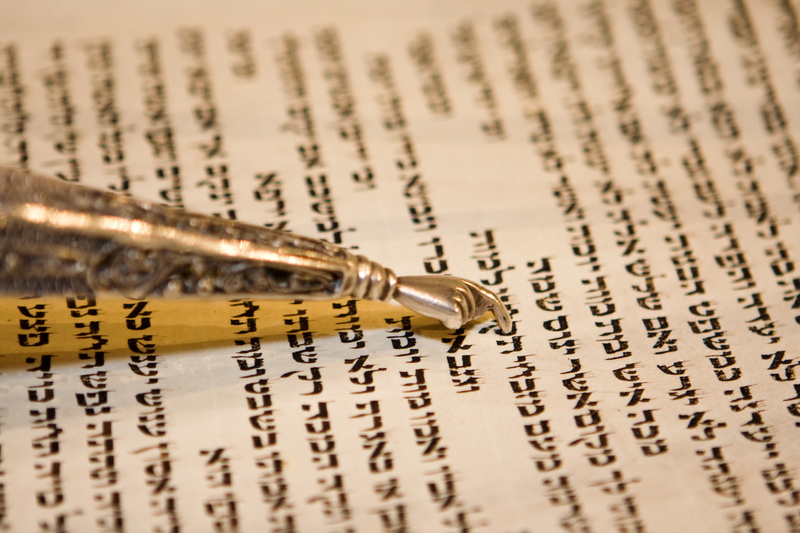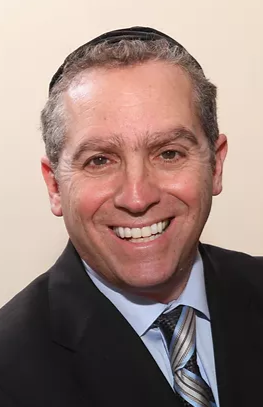
Ve'etchanan continues the speech to B’nei Yisrael that Moshe began in Parashat Devarim during the last thirty-six days of his life. Moshe begins this speech by rebuking the Israelites, though the Ramban explains that the intention was not to put the people down but rather to show them that even though they deserved the rebuke, Hashem had still blessed them throughout their forty years of wandering in the desert. They were provided with Maan, with water, with a guiding pillar of cloud and fire and with constant divine protection. In this way Hashem showed his love for the people.
Hashem shows us His love through incidents that occur on a daily basis. Last week we heard about Hashem's love for us through the life of a prominent community member, Harry Ashkenazi. About a year ago Harry collapsed from a massive heart attack as he walked into the SBH office on Kings Highway in Brooklyn. In his Seuda Hodaah (a meal of thanks to Hashem) he described with tears of joy all the amazing miracles that happened to him and which saved his life. He had just walked into the office and wasn't in the street or driving his car.
The Hatzolah ambulance was around the corner, literally 30 seconds away. Someone called 911 for the EMS, and they arrived ten minutes later with the necessary equipment. Between Hatzolah and the EMS, they both worked on him for 40 minutes, and even though the EMS wanted to give up and actually started to cover his body, Hatzolah would not stop trying to revive him up until they finally got a pulse. The reason he was going to SBH was for a consultation for cancer that he was recently diagnosed with. Now that he had survived a heart attack he was too weak for the chemo treatment, so they had to try a plan B treatment, which ended up working out even better than chemo would have. At the end of his speech, Harry inspired all who were present with words of Emmunah. He shared three messages that night:
1) Hashem is always with us every step of the way, and never doubt that.
2) Hashem does everything only for the good, no matter what we may think.
3) His Tefilot are more spiritual now than ever before and the words have so much more meaning.
This is the reason that Moshe had to rebuke B'nei Yisrael. He wanted them to know that no matter what happens in life, through all the trials and tribulations that we go through, we must maintain our Emmunah that Hashem is always with us, loves us, and only does good for us no matter what we may think.
Now in this week’s Parasha, Moshe repeats the Ten Commandments, with a few minor changes. In Parashat Yitro it says (20:12): "Honor your father and your mother, so that your days will be lengthened upon the land that Hashem your G-d gave you." This becomes "Honor your father and your mother, as Hashem, your G-d commanded you, so that your days will be lengthened and so it will be good for you, upon the land that Hashem, your G-d, gives you."
Rabbi Frand comments on the extra words "that Hashem commanded you ". Earlier, they understood that they were obligated to honor their parents because they just got out of Mitzrayim and were taken care of by their parents. But the generation that came through the desert were taken care of by Moshe and by Hashem’s protection, so they didn't have to depend as much on their parents. The extra words are a reminder that even if we don't get anything from our parents, we must always honor our father and mother, since they were partners with Hashem to bring us into this world.
Perek 6 Passuk 4 brings us the familiar words, "Shema Yisrael Adonai Elokenu Adonai Echad!" which we recite three times a day: "Hear, O Israel: Hashem is Our G-d, Hashem is the One and Only"! Rambam comments that the importance of the recitation of the Shema every morning and every night is indicated by the fact that the Torah places it immediately after the Ten Commandments.
According to Rav Chasman, cited in Rabbi Twersky's book, this is more than just a statement of our personal faith. The 'Shema Yisrael' is the acceptance of the responsibility that we will live our lives in a manner that will convince others that Hashem is the One and Only G-d. We must be a living example in this world by emulating His Midot of Hesed. Through Kiddush Hashem we must sanctify Hashem’s name to the nations. In 'Pirke Avot' there is a passage in which each Rabbi is associated with a quote which is the essence of his teaching. The phrase “hu haya omer” means “he used to say”, but looked at literally, the three words mean, “he was said.” In other words, the Rabbi was what he said; he ‘walked the talk'. He personified his teachings.
Another question that's asked is, why do we cover our eyes when we say "Shemah Yisrael"? The answer is that despite the fact that even if we can't see or understand Hashem's ways, we have unwavering Emmunah, and we believe that everything that Hashem does is only good, even though we may not understand His ways today.
The Shema goes on to say: "veahavta et Hashem Elokecha be’chol levavcha u'bechol nafshecha u'bechol meodecha." "You shall love Hashem with all your heart, with all your soul and with meodecha." What does meodecha mean? The word is hard to translate. The closest root is Meod, or “very”; hence, “with all your might” is a common translation. But the word can also refer to possessions. This means that we acknowledge that everything we possess comes from Hashem.
As we learned from Rabbi Diamond, we have to thank Hashem for everything He has done for us throughout our lives! Just look back at your life and see the parents and family that Hashem gave you, the opportunities, the house and the business that He gave you, and the community He put you into.
Your health, your appearance – all that you possess is from Hashem. And this includes the adversities and the tests that He sent your way to challenge you and to help you grow by. Also, look at the Rabbis who helped to guide you and the mentors who inspired you throughout your life up until this very day!
Rabbi Diamond gives this example: Does anyone walk around boasting, “I have great kidneys?" No, because that was a gift from Hashem, and just as we can't be proud of our kidneys, we also can't be proud of anything else that Hashem gave us, whether our business, our appearance, our spouse, or our family, because they were all given to us from Hashem!
The ayin of the word “shema” and the daled of the word “echad” are written large in the Torah scroll. These two letters spell ed or “witness". By reciting the 'Shema', the Jew is a witness to Hashem's Oneness and to His creation of the world!
May we all accept upon ourselves to use the 'Shema Yisrael' as a reminder of our responsibility to perform 'Kiddush Hashem', and may we always remember that everything that Hashem does for us is good, even though we may not understand it at the time. May we also appreciate all the gifts that Hashem has bestowed upon us and never take those gifts for granted. Amen!
Parasha perspective By Jack E. Rahmey from the teachings and guidance of Rabbi Amram Sananes.








